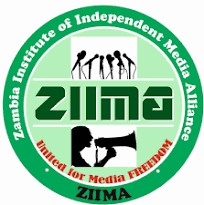In a statement released yesterday, the Zambia Institute of Independent Media Alliance (ZIIMA) expressed deep concern over what it perceives as an alarming trend of actions by State actors constraining the space for media practitioners.
ZIIMA is troubled by the apparent criminalisation of critical and responsible journalism, citing a rise in threats and physical attacks on journalists over the last two years during the tenure of the United Party for National Development (UPND).
Despite assurances from the UPND and President Hakainde Hichilema at his inauguration about providing a safe working environment for the media, ZIIMA has observed a series of incidents that raise questions about the fulfillment of those promises.
Notable instances include the summoning of SABC correspondent Arthur Davies Sikopo to Police headquarters with the confiscation of his equipment. Additionally, journalists at the Zambia Daily Mail, namely Stafrance Zulu, Conrad Chikweto, and Chongo Sampa, were reportedly dismissed for capturing images of citizens queuing for mealie-meal during a shortage.
The most recent case involves the arrest of Thomas Allan Zgambo, who faces charges of sedition. ZIIMA views this move as part of a calculated campaign to intimidate media outlets critical of the UPND government, expressing concern about a potential shift toward dictatorial rule in Zambia. Despite promises of enhanced freedom and democracy during their electoral campaign, ZIIMA notes that such commitments appear to be eroding, with increasing harassment and intimidation directed at media professionals critical of the ruling party.
ZIIMA, represented by Consultant Wilson Pondamali, has called on the UPND government to reconsider its approach towards journalists and create an environment that fosters media freedom.
ZIIMA further highlights the denial of both bond and necessary medical attention to journalist Thomas Allan Zgambo, urging a reevaluation of the negative stance toward journalism practitioners and a commitment to facilitating an environment conducive to media freedom.

